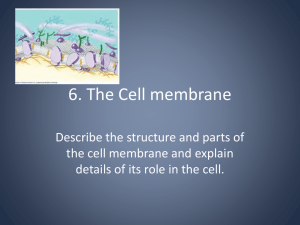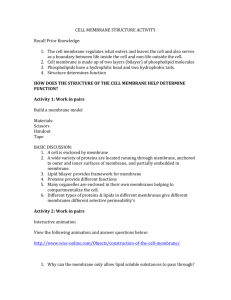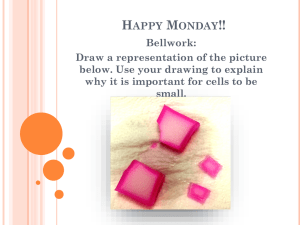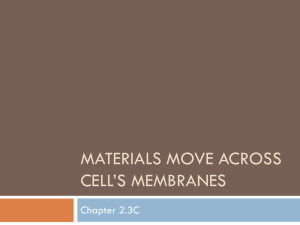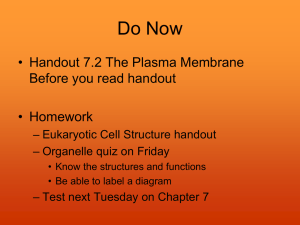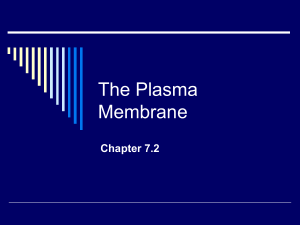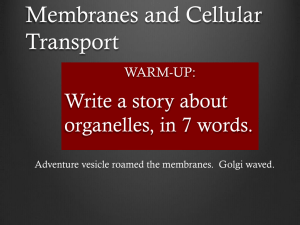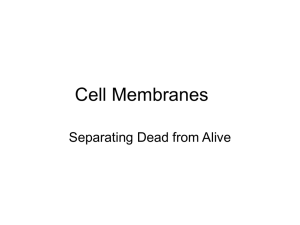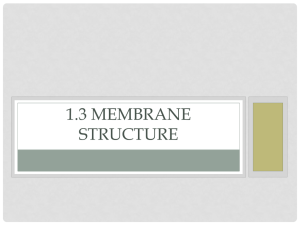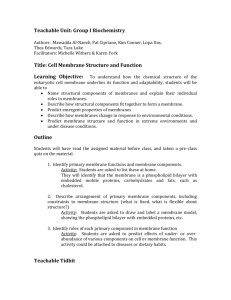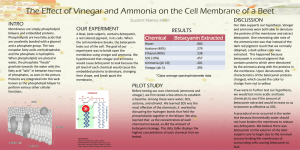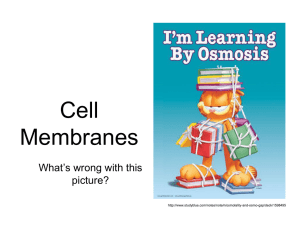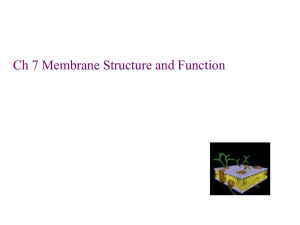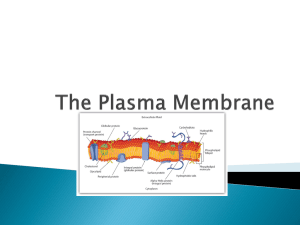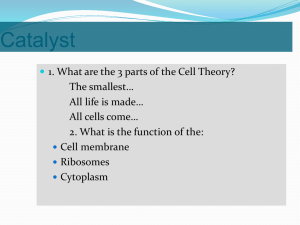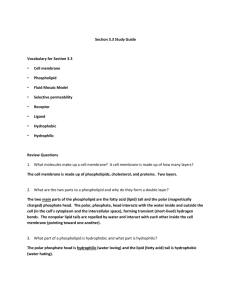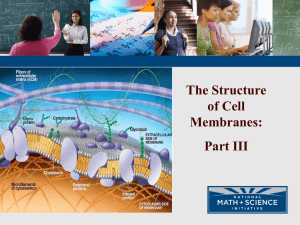plasma_membrane
advertisement
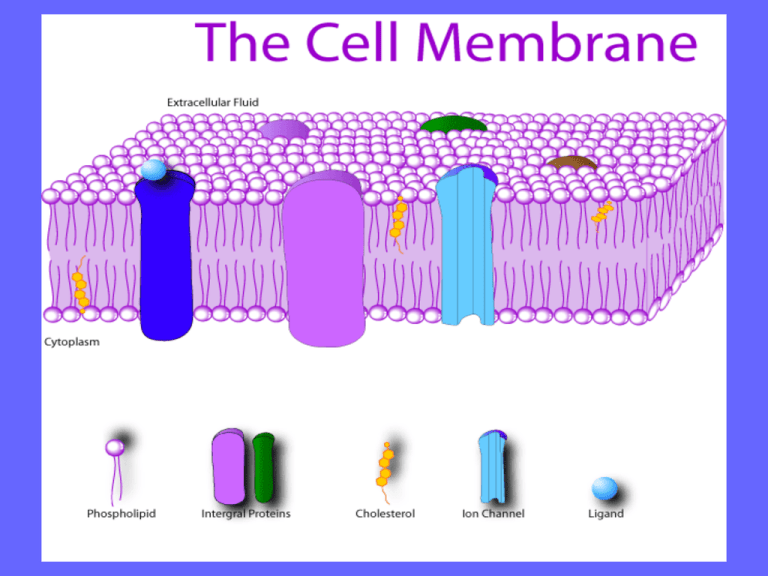
Phospholipids are a class of lipids and are a major component of all biological membranes. They produce tiny pores which can allow simple diffusion and osmosis. The ion channel on which the ligand is bound, opens or closes in response to the signals from the ligand. Cholesterol helps to “pack” phospholipids into the membranes, which gives more rigidity to the membranes. Cholesterol also serves other useful functions in the membrane, such as Integral proteins act as a transporter for various molecules that otherwise wouldn’t be able to move across the membrane. The identification of the cell for recognition of other cells is another function that the integral proteins serve. The ion channel opens and closes in order to let ions pass through. A model called the Fluid Mosaic Model has been created as the detailed structure of the membrane is too fine to see even with an electron microscope. The Fluid Mosaic Model is called because: Fluid – the molecules are always changing position with each other Mosaic – the pattern of proteins looks like a mosaic The membrane acts as a boundary layer to contain the cytoplasm The membrane provides a stable site for the binding and catalysis of enzymes Functions of the plasma membrane Some of the transport processes of the membrane happen automatically, these are passive transport processes. Others require energy from the cell, these are active transport processes The membrane helps to protect the cell The membrane is selectively permeable, it can select the chemicals which pass in and out of the cell The interlocking surfaces of the membrane bind the cell together Cholesterol makes the membrane more rigid which gives greater protection to the cell. How the structure of the plasma membrane helps it to function The tiny pores created by phospholipids allow the cell to perform processes such as osmosis and diffusion The proteins in the membrane help to provide a stable site for the binding and catalysis of enzymes
